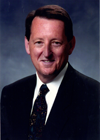 Part of the Generations Education Series Sponsored by the Archstone Foundation
Part of the Generations Education Series Sponsored by the Archstone Foundation
Register Now
Includes Complimentary CEUs
The tremendous growth in the older population in the United States should mean boom times for the aging network of area agencies and service providers established some 50 years ago by the passage of the Older Americans Act. Instead, the network of aging service providers faces major challenges, and in many states long-standing providers are fighting for their survival. How and why has this happened? What are the implications of these changes for the delivery of services to older people? Do these changes represent natural progress and efficiency as the nation responds to an ever-growing older population, or do they represent proprietary businesses capitalizing on a growing market with limited commitment to serving frail and vulnerable elders?
This three-part webinar series will provide an overview of the issues and a range of perspectives on the future of aging services in the United States. In this first webinar, we will frame the challenges, describe how we reached this point, and discuss issues facing the aging network in the future. Later webinars will explore strategic practice and policy options in more detail.
Participants in this webinar will be able to:
- Identify the critical challenges facing the aging network;
- Recognize the historical and policy changes that have occurred over the past five decades and how they shape today’s issues;
- Discuss major future challenges faced by providers of aging network services; and,
- Articulate how current challenges could impact older consumers and their families.
Presenters:
 |
Bob Applebaum is a researcher who has been involved in the evaluation of aging service programs for more than 30 years. He has worked with more than 30 states designing and evaluating aging services programs. |
 |
Rich Browdie has been an administrator of aging services for more than 30 years at the area agency and state levels, including eight years as the Secretary of Aging in Pennsylvania. |

